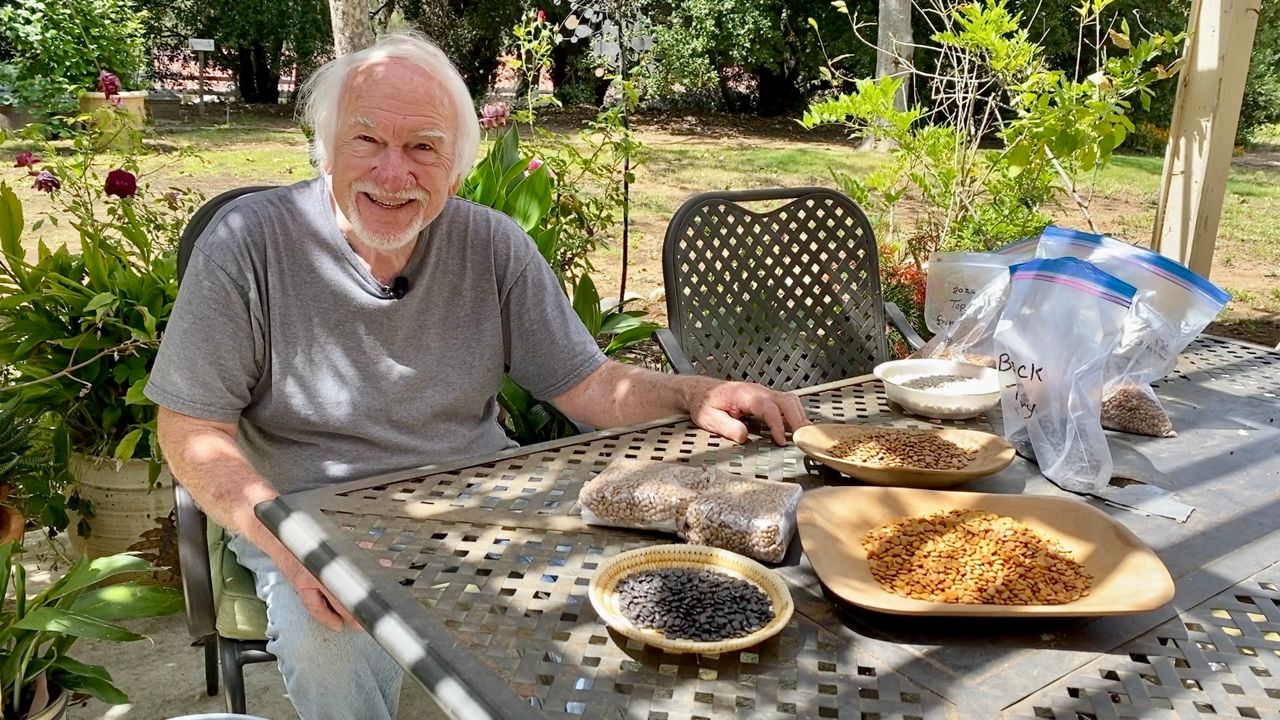SAN DIEGO, Calif. — Scientists at the Salk Institute for Biological Studies have discovered higher temperatures drain plants of important nutrients.
Over his years as a farmer, Mike Reeske has developed a special relationship with the heirloom beans he grows.
"I love the beans. I love what they are like," Reeske said.
Reeske is now trying to figure out how to continue growing them successfully. He has seen scorching temperatures affect his acres of beans on his farm, Rio Del Rey, in Valley Center.
"We sometimes have things that take longer to grow because of the heat. There are some things that don't come out at all because of the heat," he said. "I used to measure the climate by when the dog water bowl froze over because we would get a fairly hard freeze here 30-35 years ago; it doesn't happen anymore."
Wolfgang Busch is a professor at the Salk Institute who is researching how to address climate change using plants through Salk's Harnessing Plants Initiative.
His team discovered that certain plants respond to high temperatures with rapid root growth, but they then become less nutritious when consumed, lacking two important nutrients: nitrogen and phosphorus.
Busch says one of the critical molecular mechanisms controlling how plants respond to hotter temperatures is HY5.
"It's like a messenger. So it tells the root cells there's high temperature, and you better grow fast," Busch explained.

Climate experts project a global temperature increase of 2.7°F by 2050. Busch says their findings indicate the necessity of nitrogen — and phosphorus-rich soil to promote crop growth and create nutritious food. They will also work to engineer crops like rice and soybeans to be more resilient to future higher temperatures.
"We really think we can leverage what we find to make this a better place, to mitigate the enormous challenges of climate change," Busch said.
According to the University of California Agriculture and Natural Resources, San Diego County has more farms than any other county in the United States.
Reeske hopes that accessible solutions will be available for the farmers who come after him.
"As far as climate change is concerned, everybody has to adapt," he said. "And hopefully, somebody will do some research to make it better."



